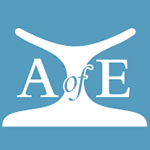Gertrude Caton-Thompson
British archaeologist; she was born in London, 1 Feb. 1888, daughter of William Caton-Thompson, a solicitor, and Ethel Gertrude Page; she was educated in private schools in Eastbourne and Paris and visited Egypt in 1911 with her mother; she worked as a civil servant during World War I and then from 1921-6 was a student of Petrie at University College London; she took part in Petrie’s excavations at Abydos and Oxyrhynchus 1921-2; her interest was in the prehistoric period in which she became a specialist; she excavated in Malta in 1921 and 1924; she joined Petrie and Brunton at Qau 1923-5 where she discovered the predynastic village at Hemmamiya; she inaugurated the first archaeological and geological survey of the Northern Fayum where she uncovered two neolithic cultures 1924-8 under the auspices of the British School of Archaeology and then the Royal Anthropological Institute; in 1929 she carried out excavations in Rhodesia at Zimbabwe and other sites; she undertook further excavations at Kharga Oasis 1930-2 and in southern Arabia in 1937-8; she served on the council of the Royal Anthropological Institute, the Royal Geographical Society, and the British Institute of History and Archaeology in East Africa; she was awarded the Cuthbert Peek award of the Royal Geographical Society, 1932; Rivers medallist of the Royal Anthropological Institute, 1934; Huxley medallist, 1946; Burton Medal of the Royal Asiatic Society, 1954; Fellow of Newnham College, Cambridge, Hon. Fellow, 1981; FBA, 1944; Hon. Litt. D. Cambridge, 1954; she served as Governor of Bedford College for Women and the School of Oriental and African Studies, University of London; her chief Egyptological publications were The Badarian Civilisation, with G. Brunton, 1928; The Desert Fayum, 1934, Kharga Oasis in Prehistory, 1952; and her reminiscenses Mixed Memoirs, 1983; she died at Court Farm, Broadway, Worcestershire, 18 April 1985.
